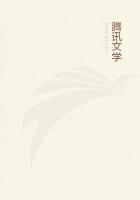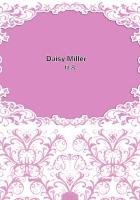THIS narrative, however, must not be allowed to close with the Son in the foreground of the piece. If it has a value, that value consists in what light it may contrive to throw upon the unique and noble figure of the Father. With the advance of years, the characteristics of this figure became more severely outlined, more rigorously confined within settled limits. In relation to the Son--who presently departed, at a very immature age, for the new life in London--the attitude of the Father continued to be one of extreme solicitude, deepening by degrees into disappointment and disenchantment. He abated no jot or tittle of his demands upon human frailty. He kept the spiritual cord drawn tight; the Biblical bearing--rein was incessantly busy, jerking into position the head of the dejected neophyte. That young soul, removed from the Father's personal inspection, began to blossom forth crudely and irregularly enough, into new provinces of thought, through fresh layers of experience. To the painful mentor at home in the West, the centre of anxiety was still the meek and docile heart, dedicated to the Lord's service, which must, at all hazards and with all defiance of the rules of life, be kept unspotted from the world.
The torment of a postal inquisition began directly I was settled in my London lodgings. To my Father--with his ample leisure, his palpitating apprehension, his ready pen--the flow of correspondence offered no trouble at all; it was a grave but gratifying occupation. To me the almost daily letter of exhortation, with its string of questions about conduct, its series of warnings, grew to be a burden which could hardly be borne, particularly because it involved a reply as punctual and if possible as full as itself. At the age of seventeen, the metaphysics of the soul are shadowy, and it is a dreadful thing to be forced to define the exact outline of what is so undulating and so shapeless. To my Father there seemed no reason why Ishould hesitate to give answers of full metallic ring to his hard and oft-repeated questions; but to me this correspondence was torture. When I feebly expostulated, when I begged to be left a little to myself, these appeals of mine automatically stimulated, and indeed blew up into fierce flames, the ardour of my Father's alarm.
The letter, the only too-confidently expected letter, would lie on the table as I descended to breakfast. It would commonly be, of course, my only letter, unless tempered by a cosy and chatty note from my dear and comfortable stepmother, dealing with such perfectly tranquillizing subjects as the harvest of roses in the garden or the state of health of various neighbours. But the other, the solitary letter, in its threatening whiteness, with its exquisitely penned address--there it would lie awaiting me, destroying the taste of the bacon, reducing the flavour of the tea to insipidity. I might fatuously dally with it, I might pretend not to observe it, but there it lay. Before the morning's exercise began, I knew that it had to be read, and what was worse, that it had to be answered. Useless the effort to conceal from myself what it contained. Like all its precursors, like all its followers, it would insist, with every variety of appeal, on a reiterated declaration that I still fully intended, as in the days of my earliest childhood, 'to be on the Lord's side' in everything.
In my replies, I would sometimes answer precisely as I was desired to answer; sometimes I would evade the queries, and write about other things; sometimes I would turn upon the tormentor, and urge that my tender youth might be let alone. It little mattered what form of weakness I put forth by way of baffling my Father's direct, firm, unflinching strength. To an appeal against the bondage of a correspondence of such unbroken solemnity Iwould receive--with what a paralysing promptitude!--such a reply as this:--Let me say that the 'solemnity' you complain of has only been the expression of tender anxiousness of a father's heart, that his only child, just turned out upon the world, and very far out of his sight and hearing, should be walking in God's way. Recollect that it is not now as it was when you were at school, when we had personal communication with you at intervals of five days-- we now know absolutely nothing of you, save from your letters, and if they do not indicate your spiritual prosperity, the deepest solicitudes of our hearts have nothing to feed on. But I will try henceforth to trust you, and lay aside my fears; for you are worthy of my confidence; and your own God and your father's God will hold you with His right hand.
Over such letters as these I am not ashamed to say that Isometimes wept; the old paper I have just been copying shows traces of tears shed upon it more than forty years ago, tears commingled of despair at my own feebleness, distraction, at my want of will, pity for my Father's manifest and pathetic distress. He would 'try henceforth to trust' me, he said. Alas! the effort would be in vain; after a day or two, after a hollow attempt to write of other things, the importunate subject would recur; there would intrude again the inevitable questions about the Atonement and the Means of Grace, the old anxious fears lest I was 'yielding' my intimacy to agreeable companions who were not 'one with me in Christ', fresh passionate entreaties to be assured, in every letter, that I was walking in the clear light of God's presence.















